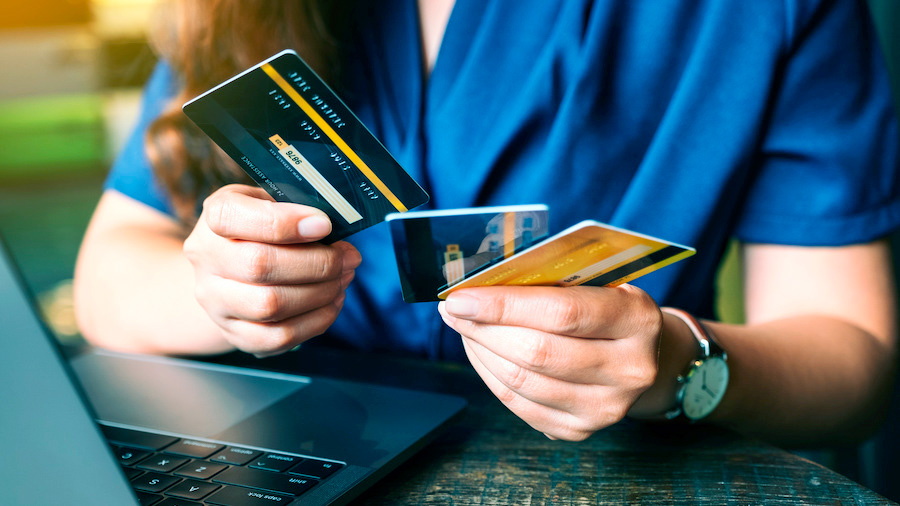Safe Online Shopping: How to Avoid Scams
4 min read
Online shopping offers unmatched convenience, allowing you to buy anything from groceries to electronics with just a few clicks. However, this convenience comes with risks, as cybercriminals are constantly devising new ways to scam unsuspecting shoppers. Understanding how to shop safely online can protect you from these scams and ensure your personal and financial information remains secure. This article provides tips for safe online shopping, including identifying secure websites, recognizing common scams, and protecting your payment information.
Identifying Secure Websites
One of the first steps to safe online shopping is ensuring that the website you’re using is secure. Secure websites encrypt your data, making it difficult for hackers to intercept and misuse your information. To determine if a website is secure, look for “https://” at the beginning of the URL; the “s” stands for secure. Additionally, a padlock icon in the browser’s address bar indicates that the site uses encryption to protect your data.
Another way to verify a site’s security is to check for trust seals or badges from reputable organizations such as Norton, McAfee, or BBB (Better Business Bureau). These seals indicate that the site has undergone security checks and meets certain standards. However, it’s important to click on these badges to ensure they are genuine and not just images placed by scammers.
Reviewing customer feedback and ratings can also help you determine if a website is trustworthy. Check reviews on independent platforms to see other shoppers’ experiences. A lack of reviews or overwhelmingly negative feedback can be a red flag.

Recognizing Common Scams
Cybercriminals use various tactics to scam online shoppers. Being aware of these common scams can help you avoid falling victim to them. One common scam is phishing, where scammers send emails or messages that appear to be from reputable companies, urging you to click on a link or provide personal information. These messages often contain urgent language, such as claiming your account will be suspended unless you act immediately.
To protect yourself from phishing scams, avoid clicking on links in unsolicited emails or messages. Instead, go directly to the company’s website by typing the URL into your browser. If you’re unsure about the legitimacy of a message, contact the company directly using their official contact information.
Another common scam involves fake websites that mimic legitimate online stores. These sites often offer products at significantly lower prices to lure in shoppers. Once you make a purchase, your payment information is stolen, and you never receive the product. To avoid these scams, compare prices across multiple sites. If a deal seems too good to be true, it probably is.
Protecting Your Payment Information
Protecting your payment information is crucial when shopping online. One of the safest ways to pay online is by using credit cards instead of debit cards. Credit cards offer better fraud protection and limit your liability in case of unauthorized transactions. Additionally, credit card companies often have advanced fraud detection systems to alert you of suspicious activity.
Another secure payment method is using services like PayPal, which act as intermediaries between you and the seller. PayPal doesn’t share your financial information with the seller, reducing the risk of your information being compromised. Similar services include Apple Pay and Google Pay, which also offer enhanced security features.
Monitoring your accounts regularly for fraudulent activity is essential. Review your bank and credit card statements frequently to ensure all transactions are legitimate. If you notice any suspicious activity, report it to your bank or credit card company immediately.

The Importance of Strong Passwords
Creating strong, unique passwords for your online shopping accounts can significantly enhance your security. Weak or reused passwords make it easier for cybercriminals to gain access to your accounts. A strong password should be at least 12 characters long and include a mix of letters, numbers, and special characters.
Consider using a password manager to generate and store complex passwords. Password managers can securely store your passwords, allowing you to use unique passwords for each account without the need to remember them all. Enabling two-factor authentication (2FA) on your accounts adds an extra layer of security by requiring a second form of verification, such as a code sent to your phone, in addition to your password.
Using Secure Payment Methods
In addition to credit cards and PayPal, consider using virtual credit cards for online shopping. Virtual credit cards generate a temporary card number linked to your account, which can be used for a single transaction or a limited period. This adds an extra layer of security by protecting your real credit card number.
Some banks and credit card companies offer virtual credit card services, allowing you to create temporary numbers directly from your online banking or credit card account. Using virtual credit cards can reduce the risk of your real card number being stolen in the event of a data breach.
Conclusion
Online shopping provides unparalleled convenience, but it’s important to stay vigilant and take steps to protect yourself from scams. By identifying secure websites, recognizing common scams, and protecting your payment information, you can shop online with confidence. Use credit cards or secure payment methods like PayPal, monitor your accounts regularly for fraudulent activity, and create strong passwords to enhance your security.
In our increasingly digital world, staying informed and proactive about online safety is essential. By following these tips, you can enjoy the benefits of online shopping while keeping your personal and financial information secure. Remember, a little caution goes a long way in protecting yourself from cybercriminals and ensuring a safe online shopping experience.



